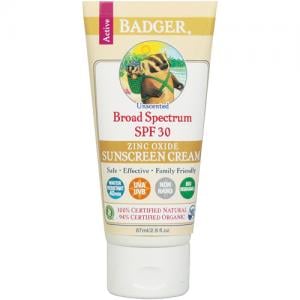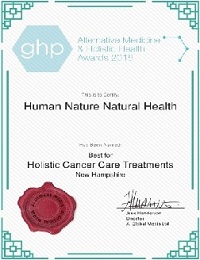Sunscreen Use and Melanoma
 Integrative Oncology - Holistic Cancer Care Dr Bier is a Fellow of the American Board of Naturopathic Oncology (FABNO), which helps patients differentiate between general-practice naturopaths and those with a specialized knowledge of oncology
Integrative Oncology - Holistic Cancer Care Dr Bier is a Fellow of the American Board of Naturopathic Oncology (FABNO), which helps patients differentiate between general-practice naturopaths and those with a specialized knowledge of oncology
 Cancer Care - An Interview With Dr. Bier We sat down with Dr Bier to ask him about his interest in Oncology care, and what he does to work with cancer patients.
Cancer Care - An Interview With Dr. Bier We sat down with Dr Bier to ask him about his interest in Oncology care, and what he does to work with cancer patients.
Sunscreen Use and Melanoma

With the beginning of the sunny season, a frequent question that comes up is what sunscreen we recommend. When I answer ‘a good tan’, I get many surprised looks. While I’m not suggesting that we all slather on the suntan oil and sit with reflectors, the paranoia about getting sun exposure and tans is not well backed in the research literature.
The first thing to recognize is that there are 3 main types of skin cancers; basal cell carcinoma, squamous cell carcinoma, and malignant melanoma. Basal and squamous cell carcinomas, known as the nonmelanoma skin cancers, account for well over 90% of all skin cancers, and are easily treated with over a 95% cure rate. Malignant melanoma is far less frequent, but responsible for 75% of all deaths from skin cancer. Almost all resources that you look at will tell you that avoiding the sun and using sunscreen is the way to prevent skin cancer, and they are correct; If you’re referring to the nonmelanoma skin cancers.
The problem is that the relationship between sun exposure and melanoma is unclear at best. In fact, a recent meta analysis, a large study where they look at all the previous good studies in the area, concluded that, “No association was seen between melanoma and sunscreen use”, meaning that the use of sunscreen is not protective against melanoma. Even more surprising is a finding from the Journal of the National Cancer Institute that, “Sun exposure is associated with increased survival from melanoma.” You might need to read that again, but it’s exactly the opposite of what most people believe - if you do get melanoma, having gotten plenty of sun exposure actually increases your chance of surviving it.
Add to that the knowledge that many sunscreen ingredients are hormone disruptors, are themselves capable of causing damage to skin cells, one of the initiating events in skin cancer. So, sunscreen itself can cause skin cancer, doesn’t protect against melanoma, and actual exposure to the sun can save you if you do have melanoma; sounds like a whole lot of confusion. Also, there are studies showing that good sun exposure lowers rates of Multiple Sclerosis, and several cancers, even cutting the rate of advanced breast cancer in half! Remember that the only natural way to get your vitamin D is to be exposed to the sun. In Northern latitudes it’s unlikely that even long days in the sun is enough to get you sufficient levels of vitamin D, which is why you need to test levels and supplement, but it’s a good start.
There are several studies that point to intermittent, intense sun exposure being the real culprit for sun damage, so I generally recommend that people go out in the early spring when the sun is still weak, and begin to build a good base tan to protect them. Once May comes, my family is outside in shorts and tank tops as often as possible. Start early, start slow and be ready for the summer when the rays are much stronger. If you do want to use sunscreen, there are two FDA approved sunscreens that are widely available that don’t have the chemical toxicity issues – Zinc Oxide and Titanium Dioxide. These are both mineral-based sunscreens that physically block the UV rays from contacting the skin, as opposed to trying to chemically alter the rays. In my days as a lifeguard, the Zinc Oxide was a thick white paste we used to wear on our noses.
Today the technology allows them to micronize it, so that it doesn’t look like you have anything on. There is some concern with the micronization process that it may allow the molecules to penetrate deeper into the body. My preference is therefore the Zinc Oxide because it’s a necessary trace element, so any that may be absorbed through the skin shouldn’t cause any problems. These physical sunscreens will protect the skin better than the chemical sunscreens, without the dangers. They will however, decrease your sun exposure and the benefits of the vitamin D synthesis.
Finally, there are studies showing a protective effect against skin cancer from multiple foods and nutrients, including the omega-3 fatty acids and green tea. So take your Cod Liver oil or EPAs, take a lounge chair outside, sit down to a nice cup of green tea, and enjoy the warmth and healing of the sun.
So What Sunscreen Should I Use?
A good resource for sunscreens is Environmental Working Group. It lists a few hundred sunscreens with ratings of effectiveness and toxicity. My personal favorite, and the one we use and recommend to patients is Badger - organic base, with non nano-particle Zinc Oxide as the sunscreen ingredient.









